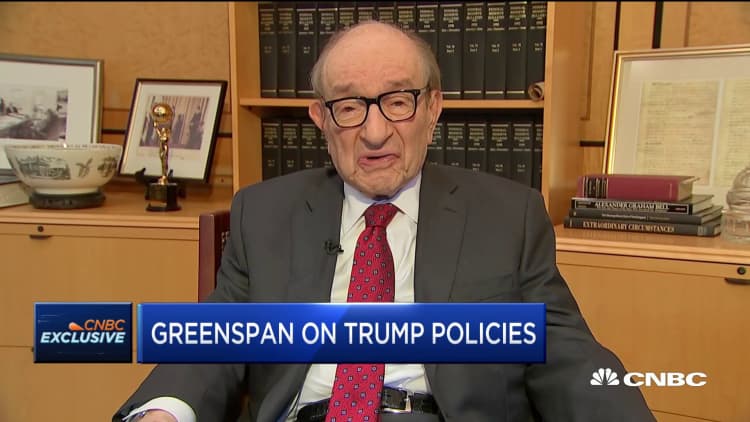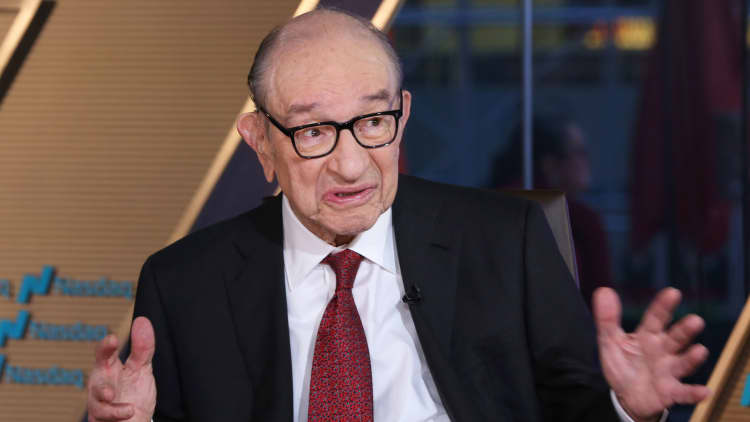
Former Federal Reserve Chairman Alan Greenspan warned Tuesday that inflation is going to pose a larger threat to the U.S. economy as budget deficits continue to rise.
"Right now, there's no real inflation at play. But if we go further than we are currently, inflation is inevitably going to rise," the 93-year-old ex-central bank chief said on CNBC's "Squawk on the Street."
As things stand, the U.S. inflation rate for years has held below the 2% level that the Fed considers healthy for a growing economy, at least gauged by the central bank's preferred measure.
That has come even though the 3.5% unemployment rate is the lowest it's been in 50 years. Fed economists closely watch what is known as the Phillips curve, which traditionally has indicated that lower employment will drive higher wages and push inflation gauges up simultaneously.
The U.S. ran a fiscal deficit in 2019 that just missed $1 trillion. As those excess dollars float through the system, that historically has driven inflation higher.

"That, on top of the stagnation we are seeing in many areas, is not very beneficent for the world economy and certainly not for the United States and China," Greenspan said.
The deficit has continued to swell under President Donald Trump, going from $665 billion during his first year in office in 2017 to this past year's $984 billion, a jump of nearly 50%.
Earlier in the day, Trump repeated his urging of the Fed to loosen monetary policy, though in less harsh terms than he has done in the past. "This is the time to do it," Trump tweeted.
Greenspan, though, said Trump's hectoring of monetary policymakers is inappropriate.
"He's wrong in even discussing the issue," Greenspan said. "The Federal Reserve is a very professional outfit. They know more about the economy's functioning, how it affects the money markets and the interest rate structure, far more than he does. ... The best thing to do is to just disregard it. ... I'm sure it was ill-advised."
CORRECTION: This story has been updated to reflect that the Phillips curve traditionally has indicated that lower employment will drive higher wages.


